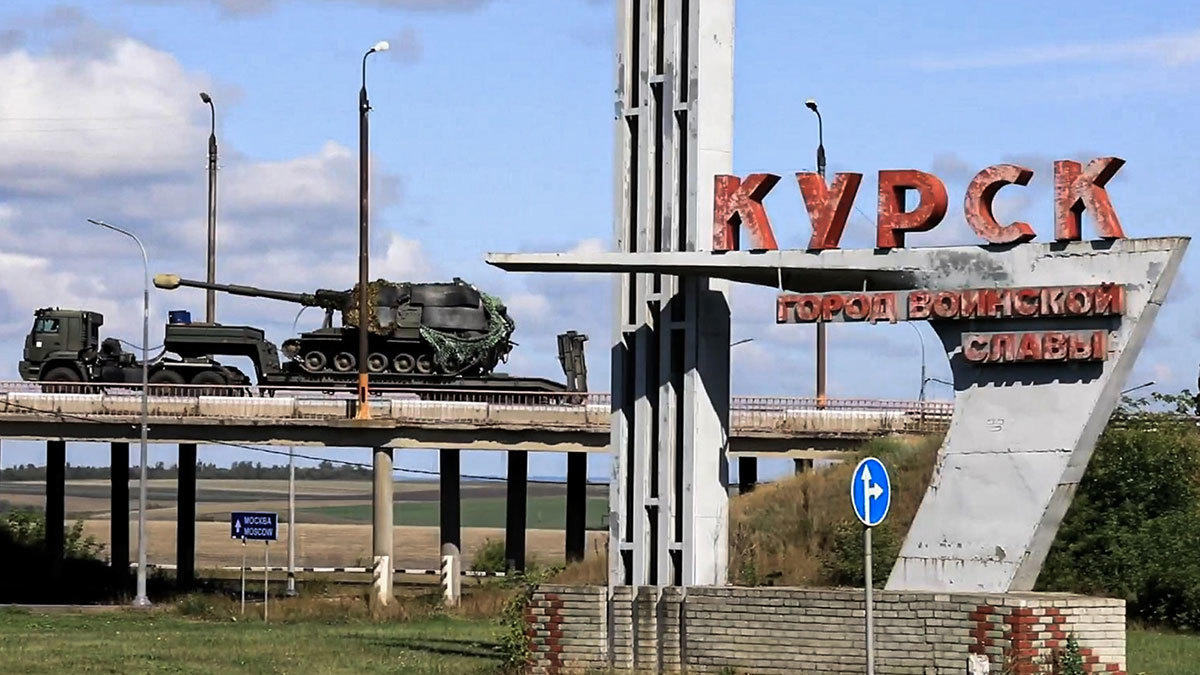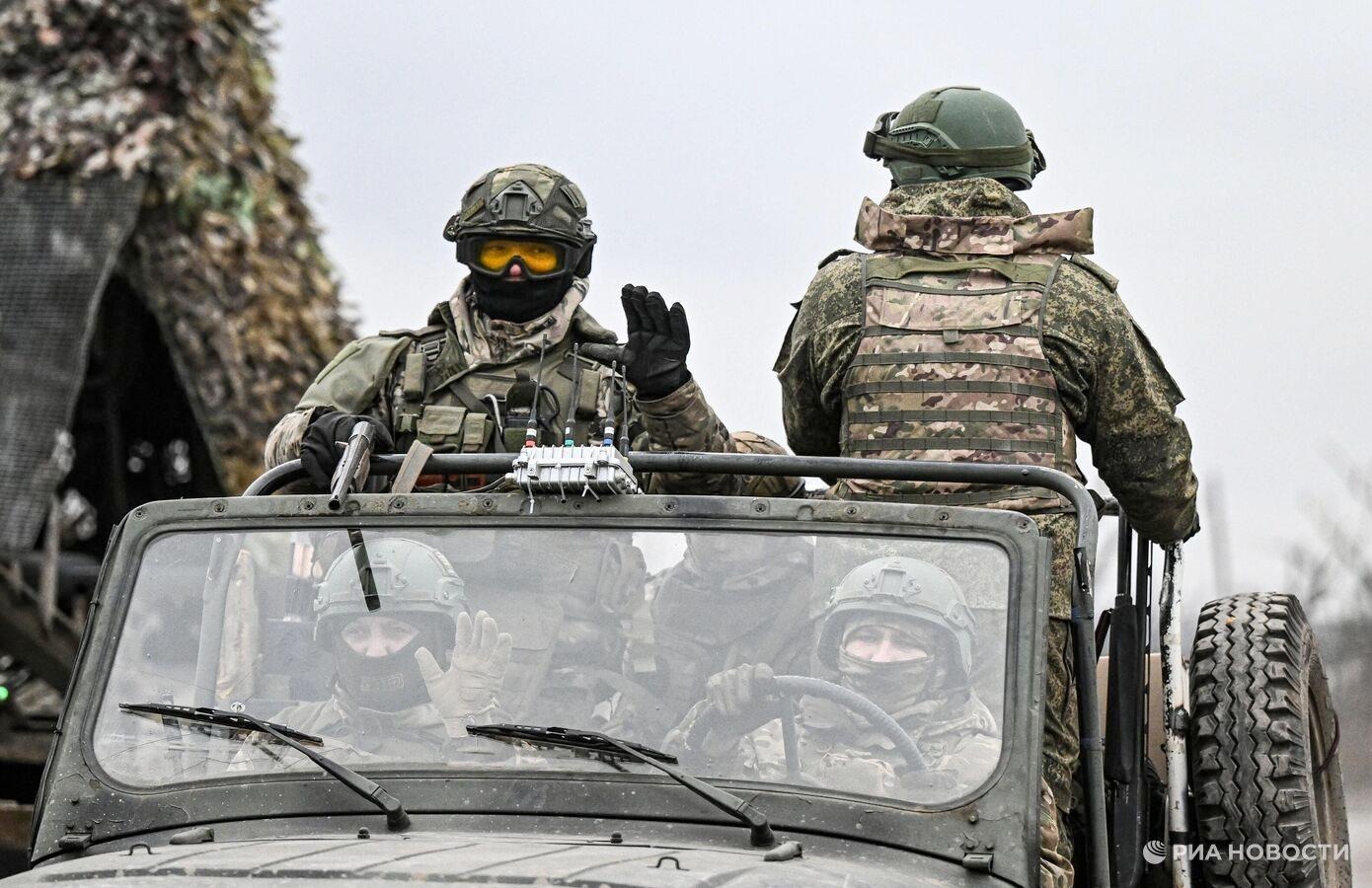
Putin’s War Myths Crumble as Ukraine Advances in Kursk Oblast
Putin’s War Myths Crumble as Ukraine Advances in Kursk Oblast
Executive Summary:
- Ukrainian troops have entered Russian territory in the Kursk direction, and Russia has been unable to gain the upper hand. Some reports indicate that Ukraine’s success was made possible by the Russian General Staff ignoring intelligence reports.
- The Ukrainian offensive illustrates that Russian leadership is not focused on national security but rather on creating and sustaining myths personally favorable to Russian President Vladimir Putin and his goals.
- The Russian response to the incursion into the Kursk region is yet another example of Putin’s mythmaking through its avoidance of the reality on the ground. This approach will remain effective only so long as the Kremlin can avoid a new mobilization and the Russian people can continue a somewhat normal life.
On August 6, Ukrainian forces entered Russia’s Kursk region, and the situation on the border remains tense (Kyiv Independent, August 8). According to official Russian reports, 28 villages were under the control of Ukrainian forces as of August 12 (RTVI.com, August 13). However, Ukrainian sources reported on August 13 that the Ukrainian army controls 74 settlements (The Kyiv Independent, August 13). Additionally, on the morning of August 12, the Ukrainian Armed Forces launched an attack on the Kolotilovka checkpoint in Krasnoyarsk district of Belgorod oblast (News.ru, August 12). Residents lament that Sudzha and other populated areas have been “turned to dust” as a result of the shelling (ВВС–Russian Service, August 8). According to independent journalists, the Russian General Staff led by General Valery Gerasimov and the Kremlin ignored intelligence reports about the concentration of Ukrainian forces near the border. The intelligence apparently warned about the possible preparation of an offensive two weeks before Ukrainian troops entered Russia. The General Staff, however, decided not to inform Russian President Vladimir Putin about the threat. Along with Ukraine’s impressive operational security, this resulted in the Russian army being caught off guard and Ukrainian troops entering the country against weak resistance (Istories.media, August 8). Russia’s reluctance to upset Putin and the need to maintain its image relies on myths of Russian greatness, which will only last so long as the Russian people are not personally affected by the war (see EDM, December 21, 2023, July 29). Eventually, Putin’s myths will be revealed for the falsehoods they are, likely leading to widespread discontent and creating enemies both inside and outside Russia.
Moscow’s lack of preparation for a Ukrainian breach is not surprising given that practically all of modern Russia’s foreign and, in large part, domestic policies are built on myths that diverge from the actual state of affairs. In addition to the purely pragmatic goal of holding onto power, the pseudo-historical myths about the impossibility of Ukraine’s existence as an independent state formed the basis for Putin’s aggression against Ukraine, which the Russian leader then parroted during his interview with US television personality Tucker Carlson in February (Kremlin.ru, July 12, 2021, February 9; Kuzio, “Crimea: Where Russia’s War Started and Where Ukraine Will Win,” July 8).
At the beginning of the full-scale invasion, US intelligence reported that those close to Putin were not providing him with accurate information on what was really happening at the front (BBC-Russian Service, March 31, 2022). Russian analytical centers and think tanks assigned to develop foreign policy strategy, while taking into account the actual international situation, only promote and rationalize Putin’s myths about the leading role of Moscow in the coming technological cycle and the unification of the “global majority” around Russia with the goal of upending the current world order (see EDM, June 26). Additionally, Russia’s own mythology is being created on the battlefield, while real intelligence is not allowed to reach the troops. A recent and persistent propaganda narrative has been the illusion of a quick and predetermined Russian victory in which “defeatist sentiments” are not allowed (see EDM, July 10). These myths can only go so far before their falsehoods are revealed.
Russian propaganda myths long ago became not only a means of fooling the population but also a vector that defined the work of the most important areas of government activity: foreign policy analysis, intelligence, the military, and even the fight against terrorism (see EDM, March 28). In all these spheres, Russian officials and security forces strive to achieve the Kremlin’s desired results.
A similar mythological consciousness is beginning to permeate all levels of Russian society. A recent journalist investigation shows that Russian officials enjoy fantasy role-playing games. For many of them, these games have become the primary motivator for participation in the war, as users have decided to “use their combat experience.” According to one of these officials, Russian politics is “heavily gamed,” and the players strive for maximum realism. “What could be more believable than real-life battles?” he explains (Verstka.media, August 9). Notably, the main culprit of Russia’s hybrid war against Ukraine in 2014, Igor Girkin (Strelkov), was also fond of military games and historical reconstruction (Dzen.ru, July 22, 2023).
The primary beneficiaries of such views are corrupt officials who, by demonstrating fake results, can steal state funds with relative impunity. This was one of the reasons for the Ukrainian incursion into the Kursk region. Russian generals and military correspondents have expressed their outrage over the billions of stolen rubles that should have been spent on minefields, anti-tank ditches, and other defense elements (Тsargrad.tv, August 12). According to conscripts caught off guard by the Ukrainian offensive, they had neither adequate weapons nor instructions from their commanders (Verstka.media, August 12). Russian media also reported that fresh conscripts are now being thrown into the combat zone to repel the attack (TSN.ua, August 11).
Concurrently, Russian propaganda is constructing a new myth intended to justify the failure in the Kursk region in the eyes of the public. The most important aspect of this new propaganda is references to the “Kursk Bulge,” inspired by one of the main battles of World War II (see EDM, August 15, 2023; Вusiness-gazeta.ru, August 9). Propaganda efforts have also focused on mixing news from the border regions with news from the front, thereby turning them into the standard “military reports” that most Russians are already accustomed to and may ignore. For example, military analysts argue that Ukraine’s taking of Sudzha in the Kursk region cannot be compared to the importance of Pokrovsk in Donbas, which has been the main thrust of the current Russian offensive (Topwar.ru, August 9). Reports from Russian border territories are presented under the rubric of “News from the SVO (special military operation),” no different from reports from Ukraine’s Donbas (News.ru, August 12).
In the third year of war, most Russians have become accustomed to reports of shelling and deaths. Moreover, thanks to propaganda, the concept of “Russian lands” has become extremely vague and is often used to refer to Ukrainian territory. Due to this, many Russians have not felt the psychological effect of the war coming to their country’s territory—at least, until it affects them personally (see EDM, October 25, November 13, 2023).
Independent observers note, however, that those Russians who were prepared to go to war as volunteers have already joined the army. Therefore, attacks in the border areas will likely not lead to an increase in those wishing to go to the front (Youtube.com, August 11). The remaining Russians are prepared to accept any propaganda myth so long as it does not conflict with the reality of their own lives. This may be seen if Moscow finally announces a new mobilization, especially if that new wave pulls from Russia’s city centers (see EDM, April 30, July 10). Under such circumstances, public sentiments related to the war are likely to change completely.
The Kremlin is digging its own grave by perpetuating these myths. When reality does break this skewed perception of the world, Putin will have to face a population of disenchanted and discontent people.


